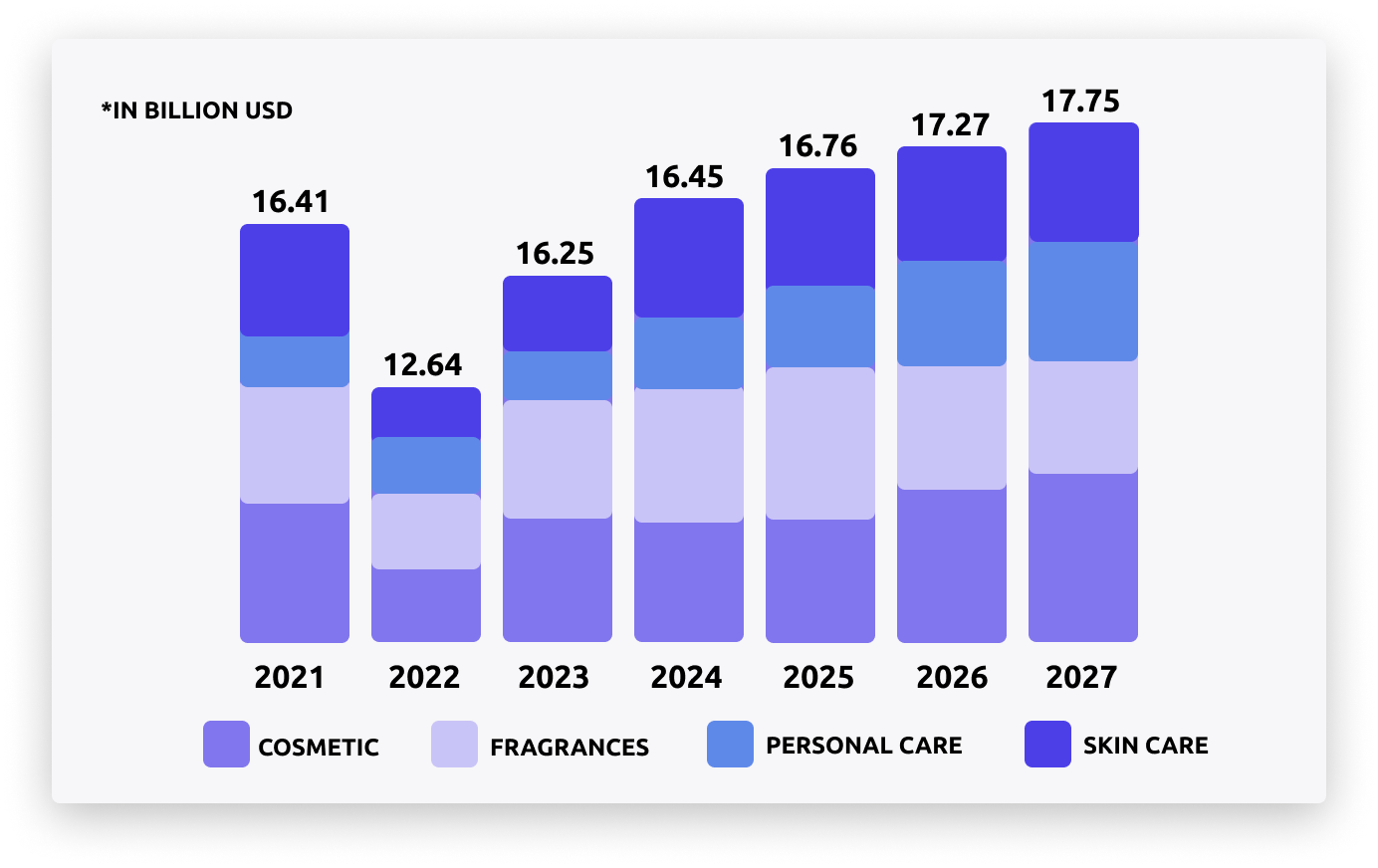Blog about successful marketing strategies in russia
Consumer Preferences for Beauty Market: Online Influence in Russia

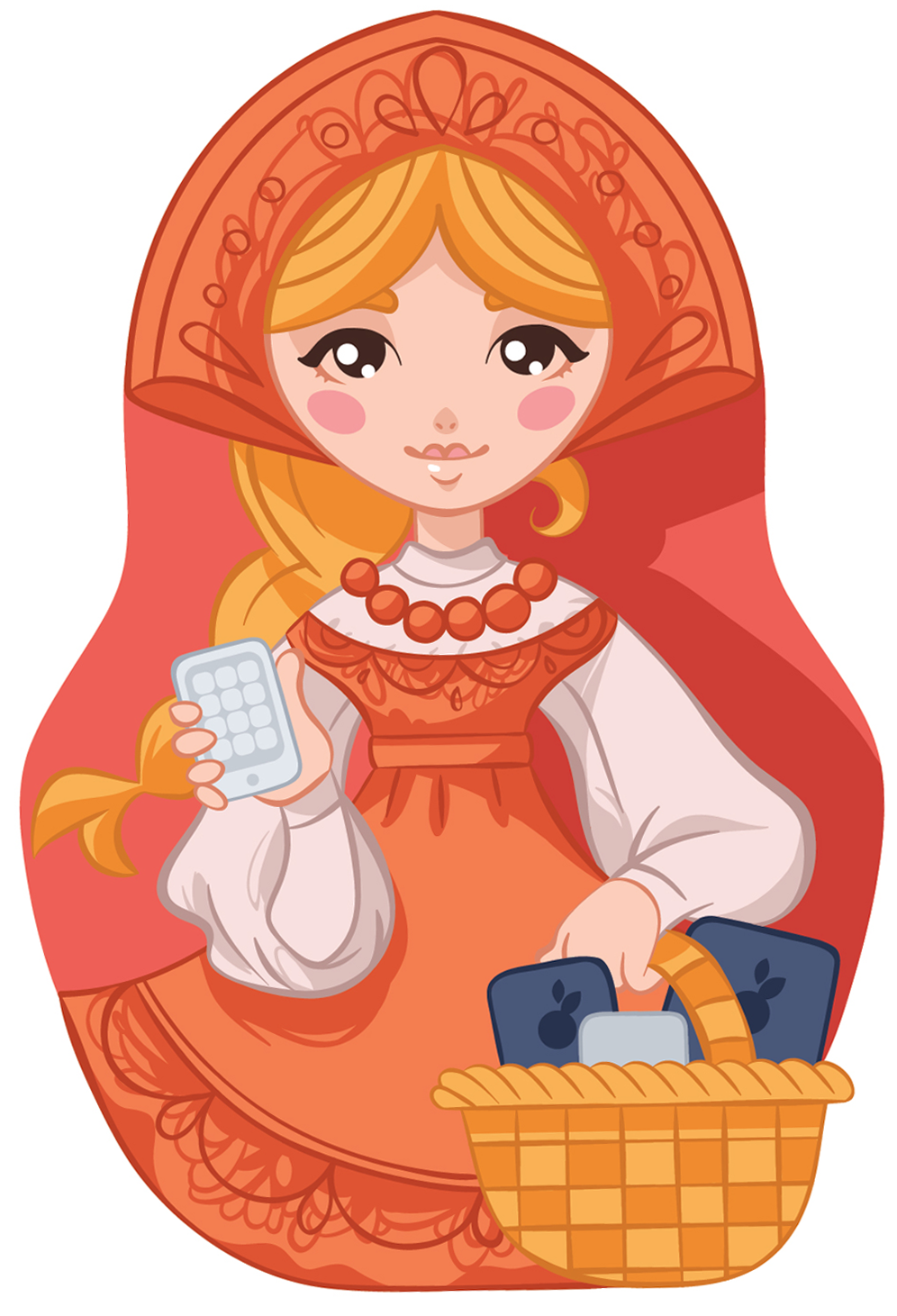
DIGITAL MARKETING
Share this Post
Experts forecast the Russian Beauty & Personal Care market to reach $16.76 billion in 2025. The expected growth rate for the coming years is 1.95%.
The share of online cosmetics sales will continue to grow, reaching 29.7% this year. One of the key drivers of this trend is the accessibility of information on the internet. Consumers can find detailed product descriptions, compare prices, and read real user reviews. Notably, shoppers actively research products online, regardless of whether they make a purchase online or in a traditional store.
Earlier we examined some of the key trends in the beauty and personal care market, including some useful analytical insights. Now, let's turn the tables and examine what buyers are guided by.
Russian Consumer Portrait
The majority of customers (57%) are women, with an average age of between 35 and 44, who purchase beauty products for themselves and their loved ones. Special attention is paid to the care of men, who rarely buy beauty products on their own.
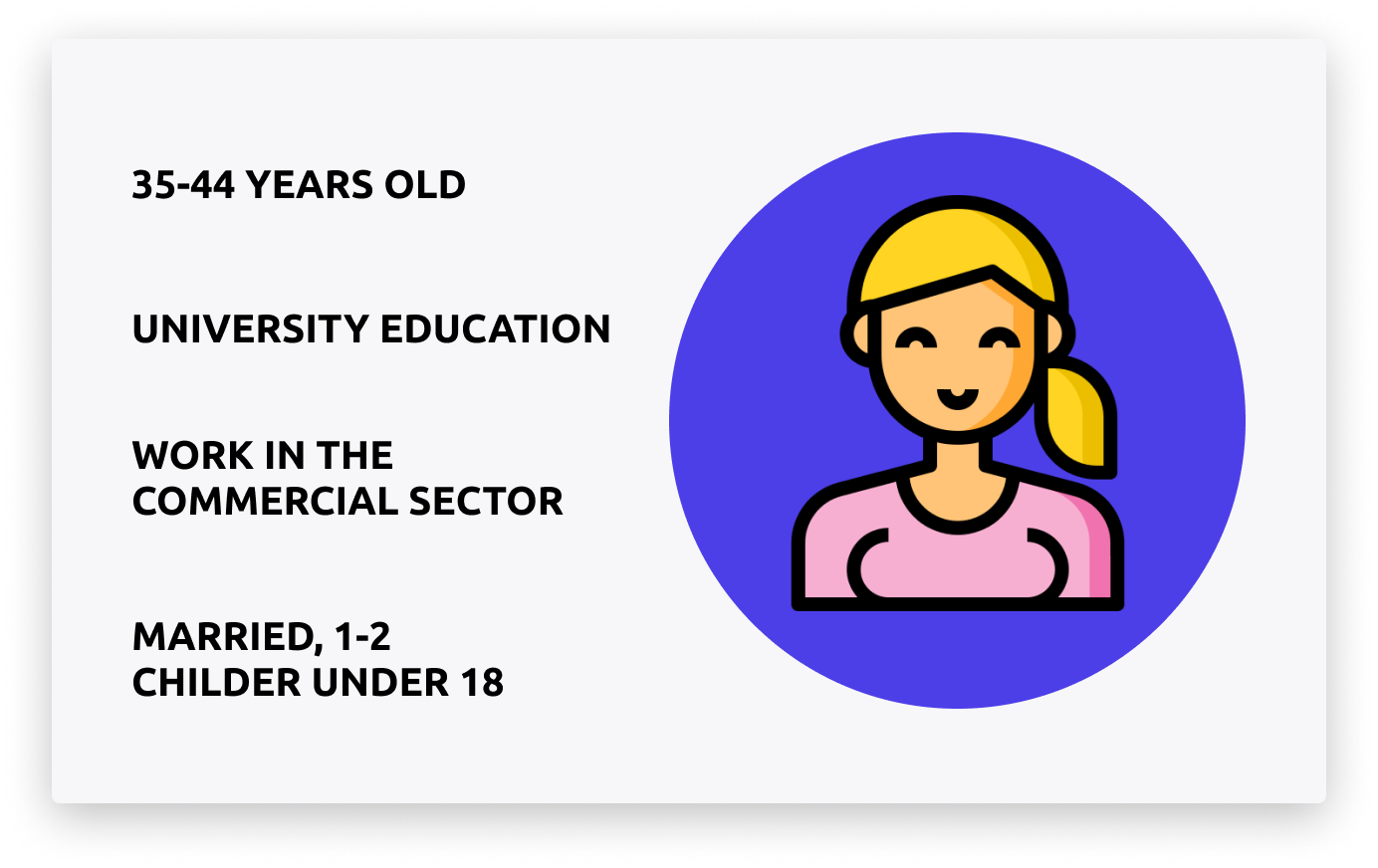
It is noteworthy that almost one-quarter of men use products for facial skincare, with the luxury cosmetics segment representing almost half of this figure.
Consumers are becoming more and more conscious of their choice of products. They carefully compare products among themselves and switch between different stores repeatedly. The main goal is to find the optimal product at the most reasonable price.
It is clear that neither men nor women will save on oral care products. According to expert estimates, the average Russian consumer currently spends approximately $118 per year on personal care.
However, it is possible for them to consider ways of saving money on cosmetic gadgets, accessories, and manicure/pedicure products. The Face Care segment holds the largest market share, followed by Body Care and Natural Skin Care.
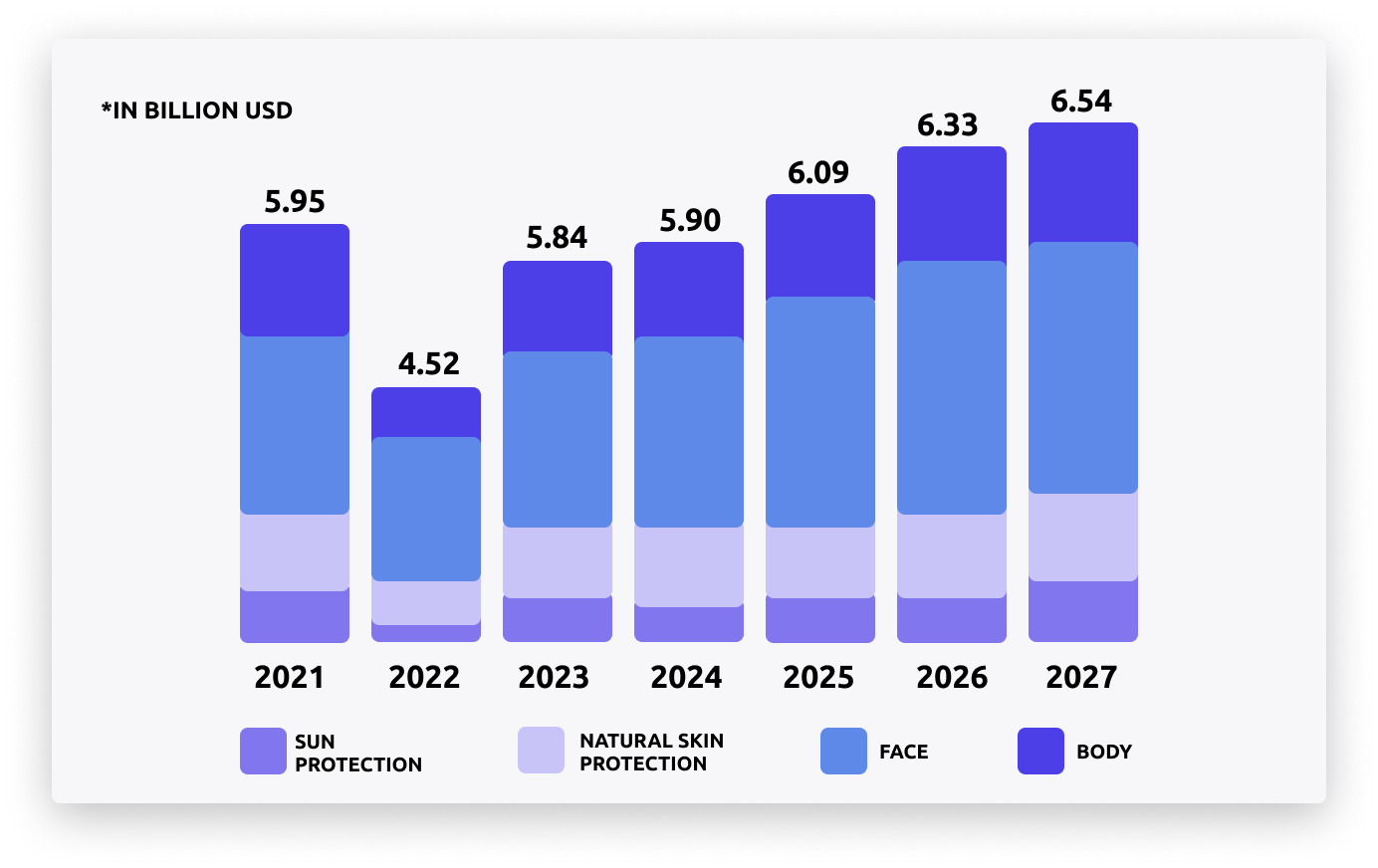
Each of these segments is evolving in its own way. Face Care remains the leader, driven by consistent demand for products that support skin health and appearance. Cosmetics and personal hygiene products also maintain strong positions with steady growth, fueled by increasing interest in natural ingredients and innovative solutions.
In addition to the development of individual Beauty & Personal Care categories in response to consumer demand, the market itself is also evolving. Its transformation has been influenced by the return of foreign brands and the emergence of new ones, which have significantly impacted both the product assortment and consumer preferences.
For example, the French cosmetics manufacturer L'Occitane resumed operations in Russia as early as mid-2022, reopening under the name "Л'Окситан." Other brands, including Lancôme, Redken, Yves Saint Laurent, Giorgio Armani, and Kérastase, also returned, discontinuing parallel imports of their products.
In addition to returning brands, new players have entered the Russian cosmetics market. These include 22|11 Cosmetics from Armenia, as well as Indian brands Colorbar, Earth Rhythm, and the premium Ayurvedic brand Purearth.
Korean cosmetics are also gaining popularity, with online demand growing by 40% over the past year. Their share in e-commerce sales has reached 30.26%. Moreover, Korean beauty brands continue to expand their presence in Russia. For instance, the L’Étoile cosmetics store now carries products from over 180 Korean manufacturers.
Advertising integration of the Korean cosmetics brand Farmstay in Karina Shaikh’s Reels, by RMAA
Online Purchases
Online platforms such as AliExpress, Golden Apple, Ozon, Wildberries, and others have become significant channels for product promotion. Quality advertising on these platforms can significantly increase brand visibility and conversion.
Statistics show that people on average buy cosmetics online a little less often than in offline stores. However, they spend 1.4 times more on a purchase than when ordering products online. Detailed analytics allows us to determine which products should be more intensively promoted in physical locations and which ones should be promoted through websites.
Wildberries is the leader among marketplaces, followed by Ozon, Yandex.Market, Aliexpress and MegaMarket. In addition, there are separate cosmetics marketplaces, such as L’Etoile and Golden Apple, which specialize in selling cosmetic products of various brands and offer a wide range of products for skincare, hair care, and makeup.
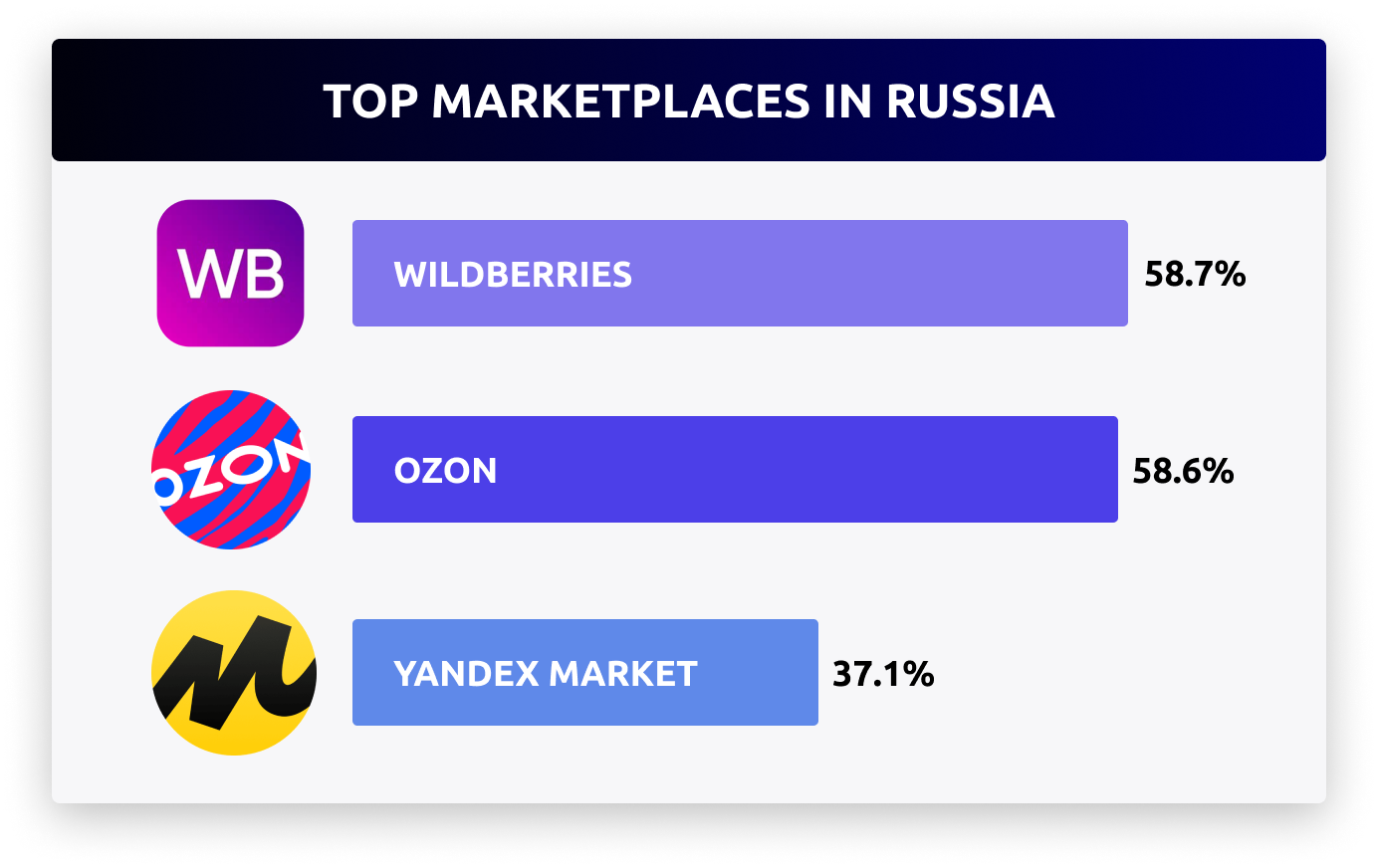
Marketplaces provide a variety of promotional opportunities. For example, paid social launched by sellers through Yandex Direct helps increase product visibility and boost sales on marketplaces, bringing them to top positions for transactional queries.
Online shoppers are more active in purchasing beauty products on all available platforms, including offline stores. They make approximately 1-2 purchases in almost every category. This is compared to offline shoppers, who prefer to store exclusively offline. When looking at specific categories, the number of makeup purchases is almost the same, with a slight advantage for offline customers. The leaders are mascara, lipstick, foundation, various pencils, eyebrow products, and powder.
However, offline shoppers are still more accustomed to buying basic body and hair care products. These include liquid soap, shower gel, hand cream, deodorants, and shampoos. They account for almost twice as many purchases compared to online customers.
The same is true for the facial care category. Offline purchases are much more common, for example, anti-age cream is 55% vs. 39% online, and eye care products are 44% vs. 34%.
Lipstick remains the most popular product for all channels without exception, with AliExpress shoppers most likely to order it more than 3 times a year. It's also worth noting that cosmetic devices (29% vs. 12%), sports nutrition products (21% vs. 11%), and weight loss products (14% vs. 8%) are also more frequently purchased online.
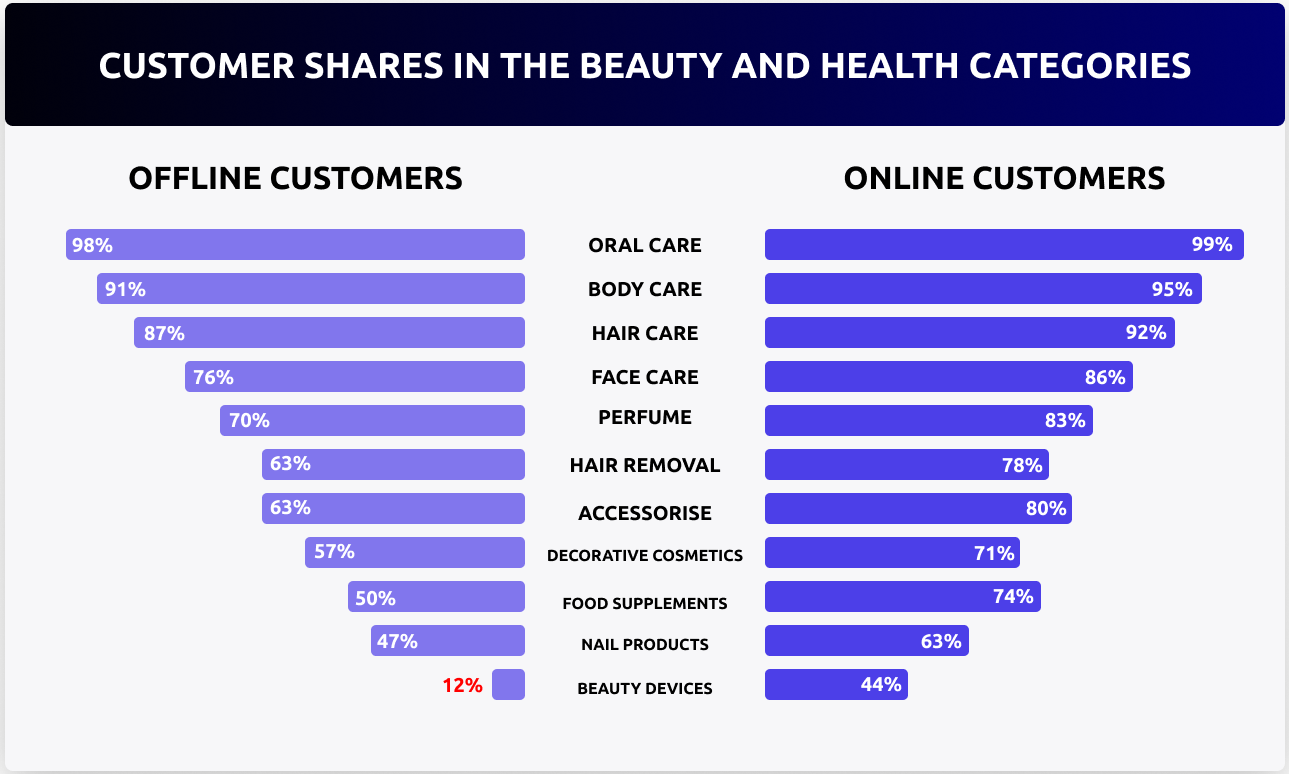
When buying makeup products on different sites, consumer preferences differ a lot. People spend the most on powder and foundation cream, about 500 rubles on average, while lip pencils cost less than 200 rubles. In the “body care” category, the average purchase receipt is higher for AliExpress customers, especially anti-cellulite care, sunscreen, and foot and hand scrubs. However, offline shoppers have the lowest spending on products in this category.
When it comes to facial care products, consumers are willing to spend the most on anti-age creams—up to 895 rubles when buying online, which is twice as much as the average cost of an offline purchase. Russians also spend more online than offline on oral, hair, and nail care products. However, spending on cosmetic devices and perfumes is higher offline than online. The biggest spend is on epilators, which cost up to 8,000 rubles offline versus 1,880 rubles online. Massagers, irrigators, and devices for diversifying intimate life are also at the top in terms of offline costs.
Factors in Selecting Cosmetic Products When Shopping
When it comes to choosing beauty products, customers are guided by several factors, let's take a look at them:
1. Social Media Recommendations
Approximately 71% of consumers decide to buy a product based on reviews posted on social media. Opinions from other users are more important for online purchases than offline purchases - 36% vs. 17%. Companies are actively using this tool by creating pages for their brands, publishing promotional posts, and running contests among subscribers.
A good example is a blogger who publishes a review of a cosmetic product, talking about his/her experience using it and showing the results before and after application. Subscribers actively comment on the post, share their opinions, and recommend it to their friends.
Farm Stay cosmetics review on Masha Zoom's YouTube channel
2. Search Networks (Organic Website Results and Paid Ads)
They are essential for influencing the buying decision process.
Search engines provide users with real-time information about various cosmetic products, prices, reviews, and ratings. This helps customers quickly find relevant information and compare offers from different sellers.
Paid ads are also an effective tool for attracting the attention of potential customers to certain products or services. Based on their search queries and interests, users are shown ads with the highest likelihood of buying.
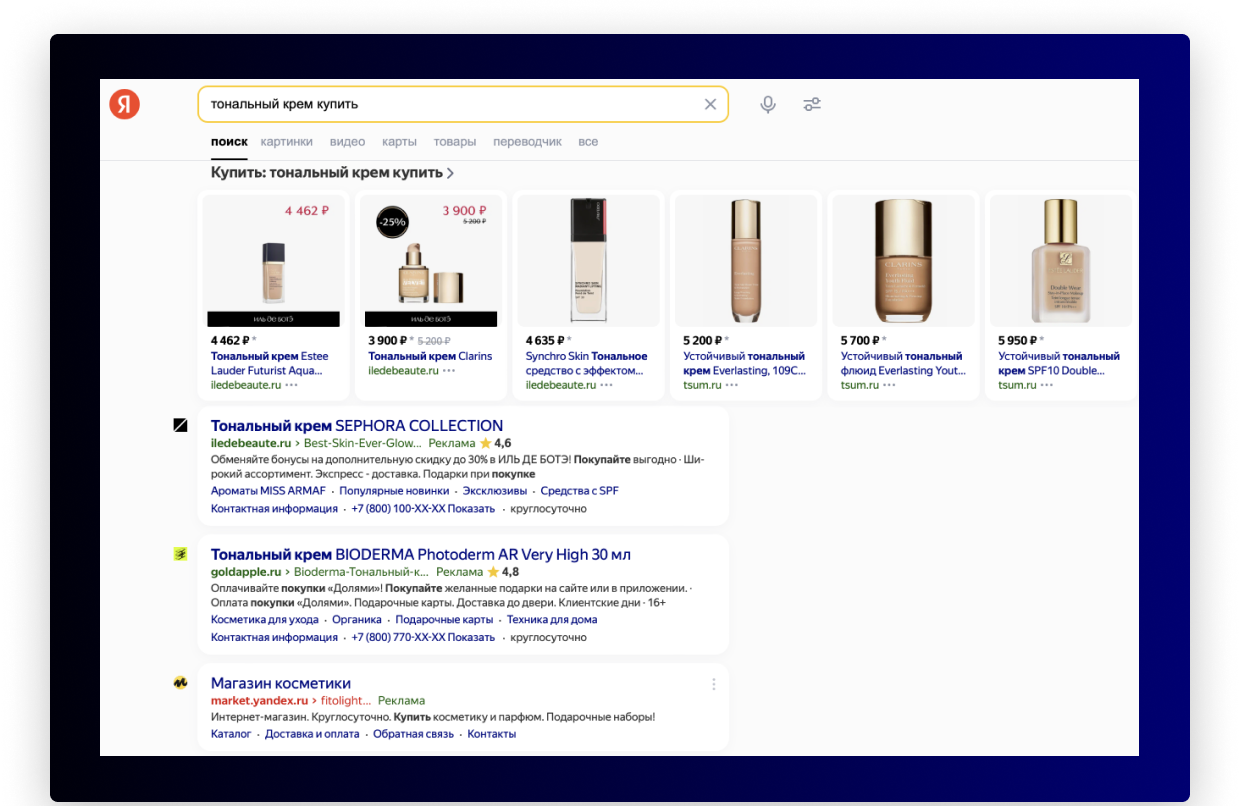
Yandex search result for “foundation buy”
Yandex is the leading search engine in Russia. It has a monthly user reach of 99.78 million people, which is about 63% of Russian Internet users. In fact, Yandex search is 10% more popular than it was five years ago. It also ranks fourth in the world's most popular search engines.
Yandex employs a wide range of promotion strategies, including a multitude of paid ad campaigns. For more details, see our previous article on the subject.
3. Emphasizing product composition in content
Product composition is a major factor influencing purchase decisions, both online and offline. Research shows that 60% and 53% of consumers, respectively, consider product composition when making a purchase.
The demand for natural products is growing in various fields, including the cosmetics industry. Brands that use natural ingredients grow faster than those that focus on synthetic substances. It is crucial to not only create natural products but also to actively communicate about them. Statements about the safety of the composition will undoubtedly increase sales.
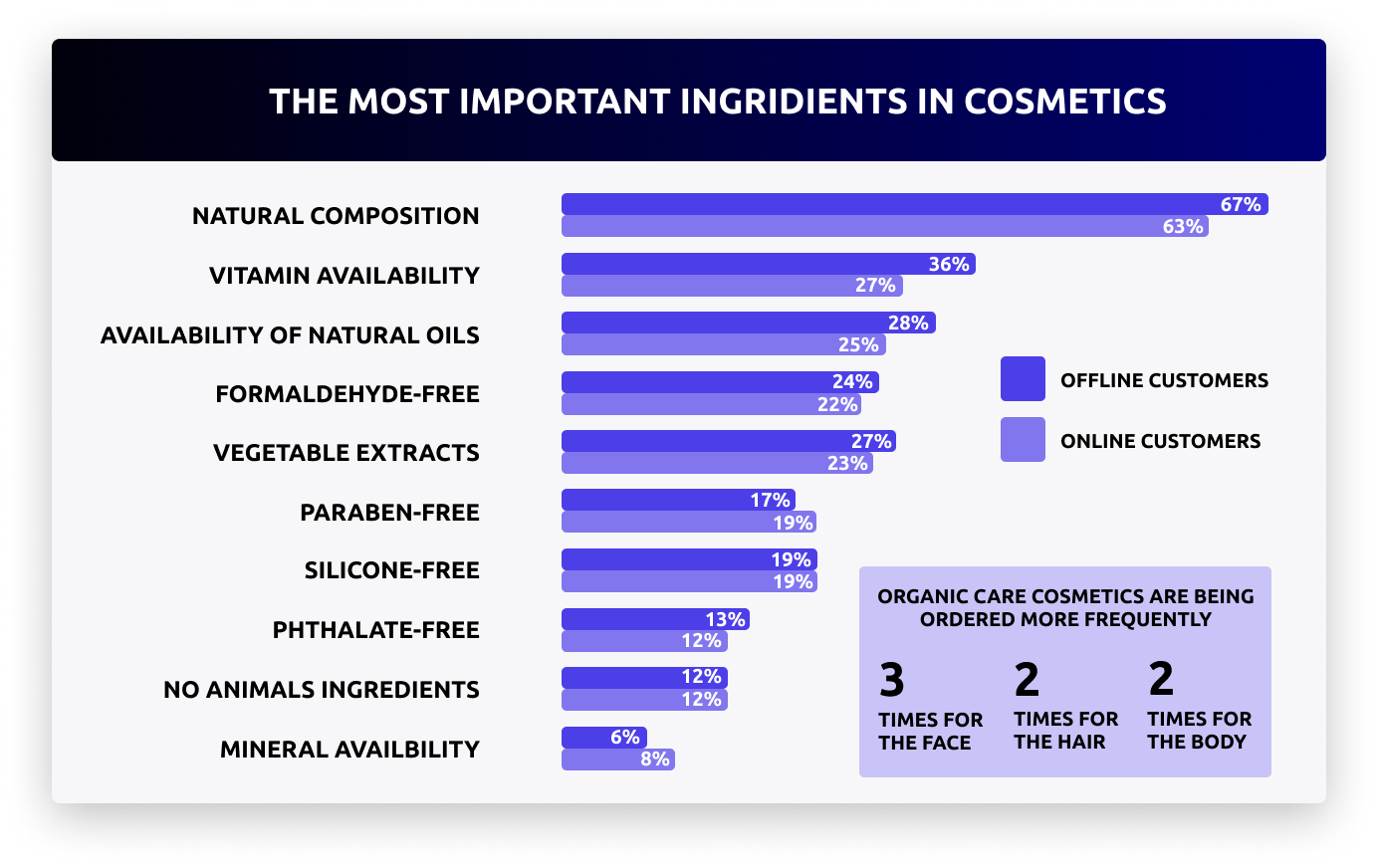
Products with a natural composition are the most trusted. Over 60% of women are ready to buy natural cosmetics, even without any prior experience with the brand. We must also consider the environmental impact of packaging, as 21% of buyers prioritize this.
This is why the demand for Korean cosmetics is increasing in Russia because they align with consumers’ desires and are made with natural ingredients.
4. Price Comparison in Different Stores
Users are always on the lookout for the best deals, so promotions and discounts from beauty bloggers are a great way to get their attention. 57% of shoppers compare prices from different stores.
For instance, if a popular beauty blogger recommends a product and announces a promotion for it at a certain store, it can be a great reason to buy.
For instance, VK blogger Yana Rudova offers comprehensive reviews of cosmetics from various brands, showcasing makeup for various occasions. She also provides invaluable insights on skincare and haircare. While her posts occasionally delve into personal topics, her primary focus is on in-depth reviews of beauty products.
5. User-generated Content
User-generated content is photos, reviews, comments, and videos created by consumers themselves. Studies show that UGC inspires more trust in potential buyers than traditional advertising.
Ecomake cosmetics review on the microblogger Beauty.mutim's Instagram account
82% of buyers trust specifically UGC videos on social media, i.e. testimonials that were filmed not for sale, because in them, the buyer can relate to the author and their story. To make a selling UGC in the beauty industry, you must focus on the non-obvious benefits of beauty products, the before/after effect, use the creator's face in the shot, and emphasize charisma.
It is also worth mentioning specialized review platforms such as Otzovik and IRecommend. These sites allow users to share personal experiences with a product or service, attach photos, and provide detailed descriptions. For brands, this is an excellent way to influence consumer decisions. Real impressions, especially with before-and-after photos, tend to build trust and increase interest in a product.
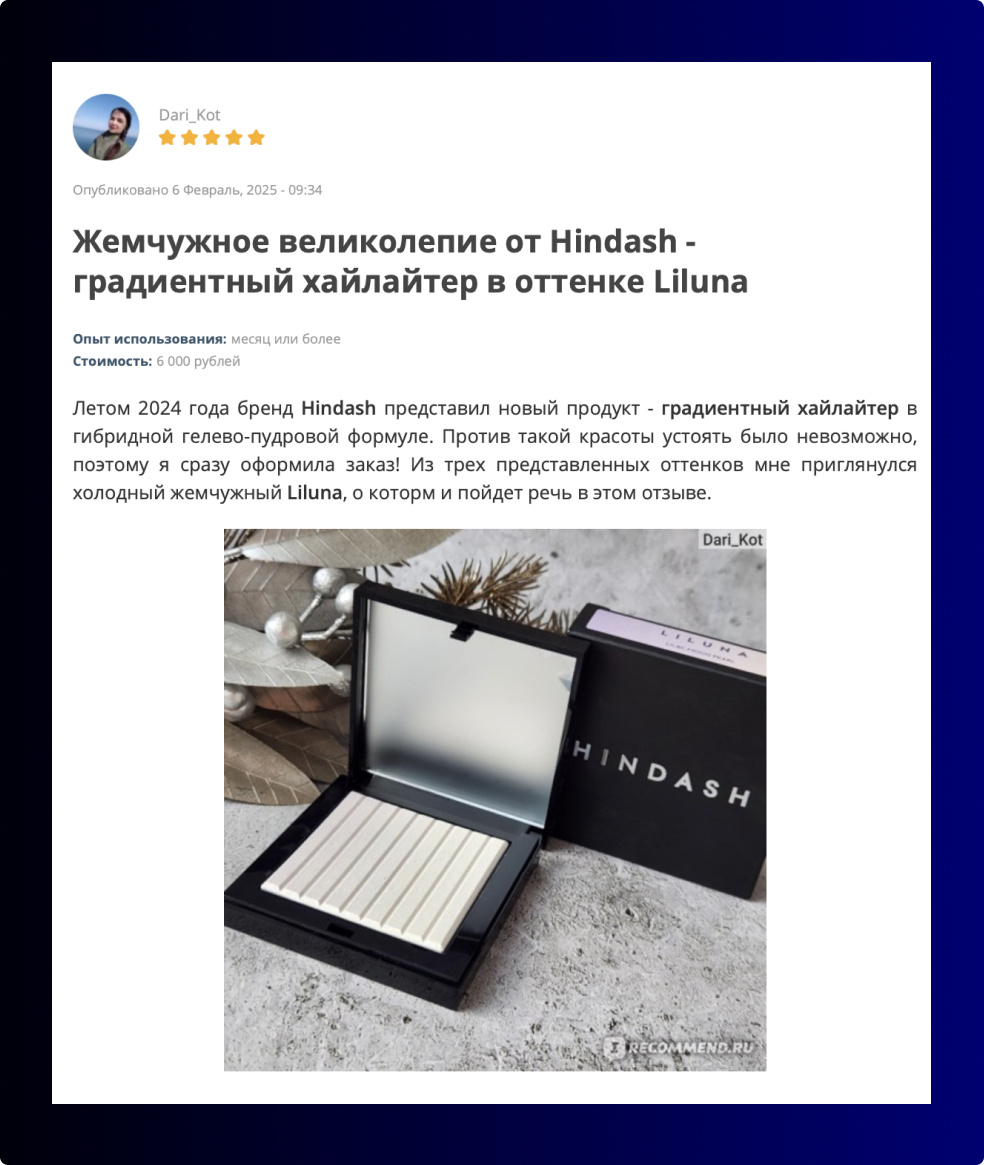
User review on the IRecommend review platform
In addition to running ad campaigns involving users, brands can advertise directly on the platform itself. For example, Otzovik offers banner ads, promotional placements (a link at the top of the main menu), and the option to secure the top spot in search results on their website.
Final Thoughts
This clearly demonstrates the importance of engaging with cosmetics customers through online channels. If you want to present your cosmetic product on the Russian market, trust RMAA specialists. We will conduct market research on your segment, make a strategy for effective entry into the Russian market, and implement it using the most effective promotion channels to attract the attention of Russian consumers.
Do you want to receive the most up-to-date information about marketing, its tools, and current analytics by industry? Subscribe to our blog by filling out the application form below.
Join 2,000+
of your Peers!
You will be the first to know about Russian marketing insights, news and updates from our agency. Stay tuned!
Get our latest articles delivered to your email inbox and get our exclusive White Paper
"Digital Marketing in Russia. Finding your customers on the internet"
for FREE!
Russian-Speaking Influencer Marketing Overview
Further insights and trends in the Influencer Industry within Russia and the CIS
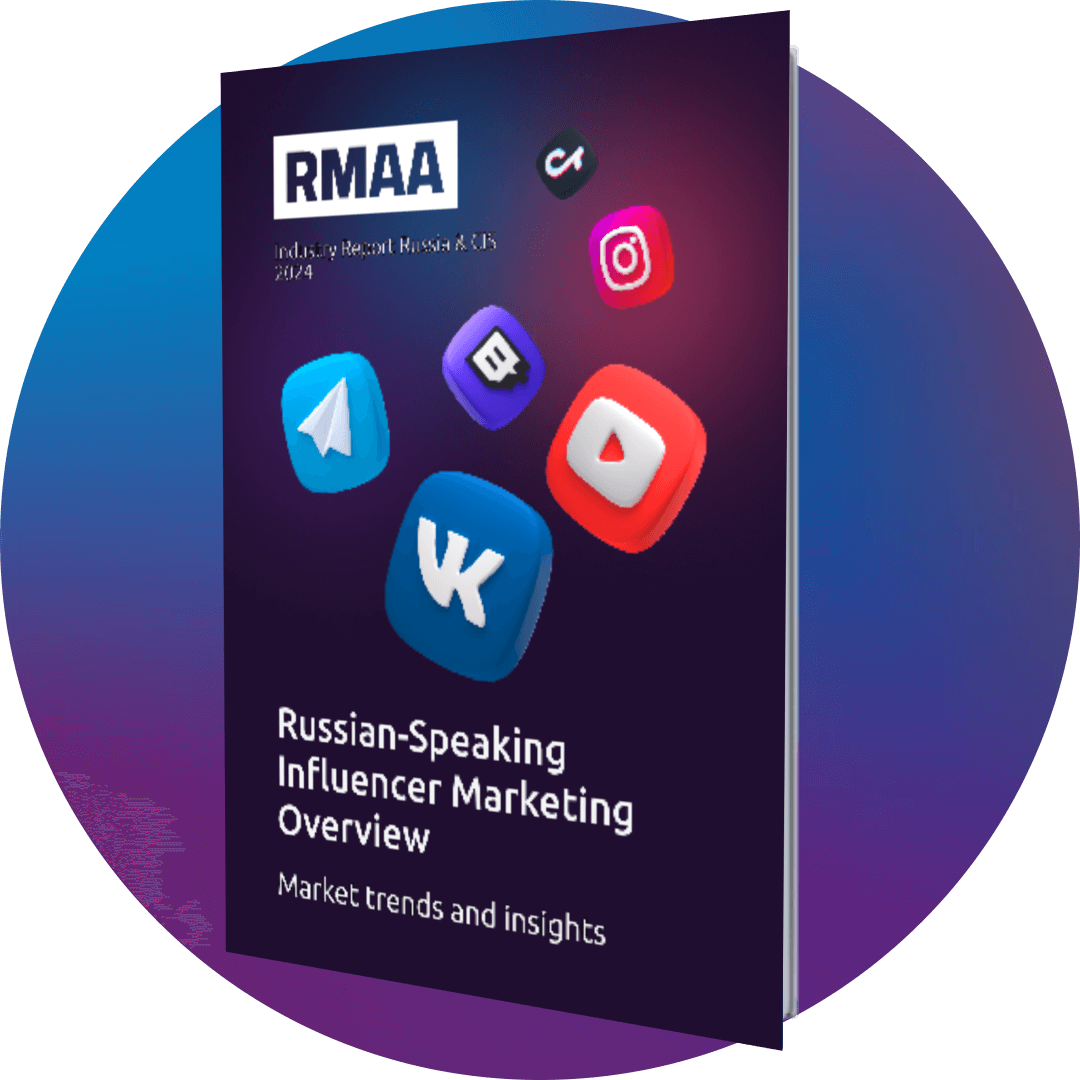
Ready to partner with the specialists in Russian marketing and advertising?
About the Author
A content lead. Natalia runs marketing projects promotion with different digital tools in the Russian-speaking market.
Join 2,000+ of your Peers!
Get our latest articles delivered to your email inbox and get our exclusive White Paper "Digital Marketing in Russia. Finding your customers on the internet" for FREE!
You will be the first to know about Russian marketing insights,
news and updates from our agency.
Stay tuned!
We're updating our website's design step by step, so some pages may look different. Thank you for your understanding.
Got it









